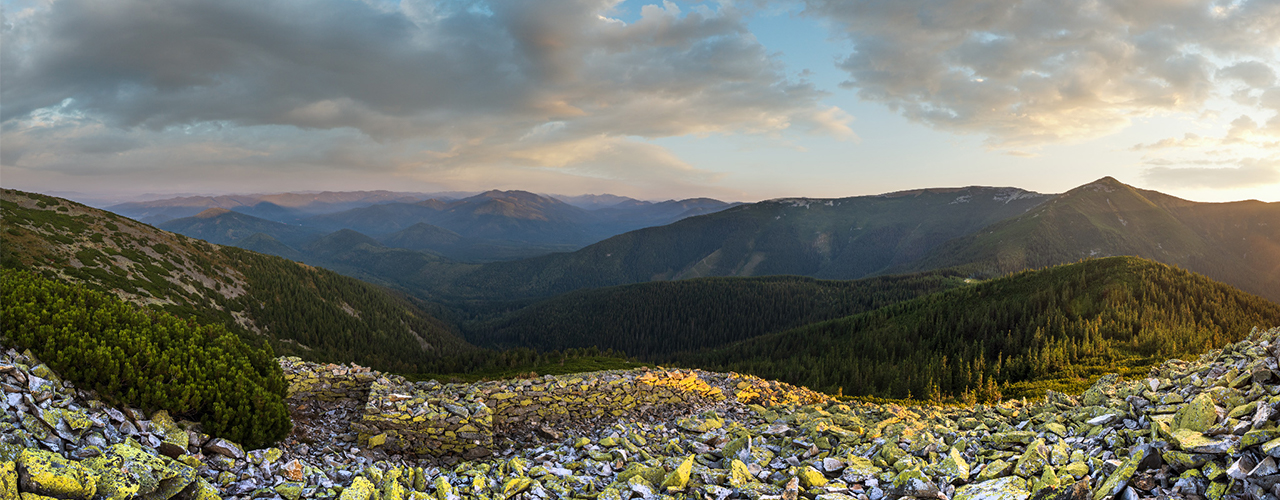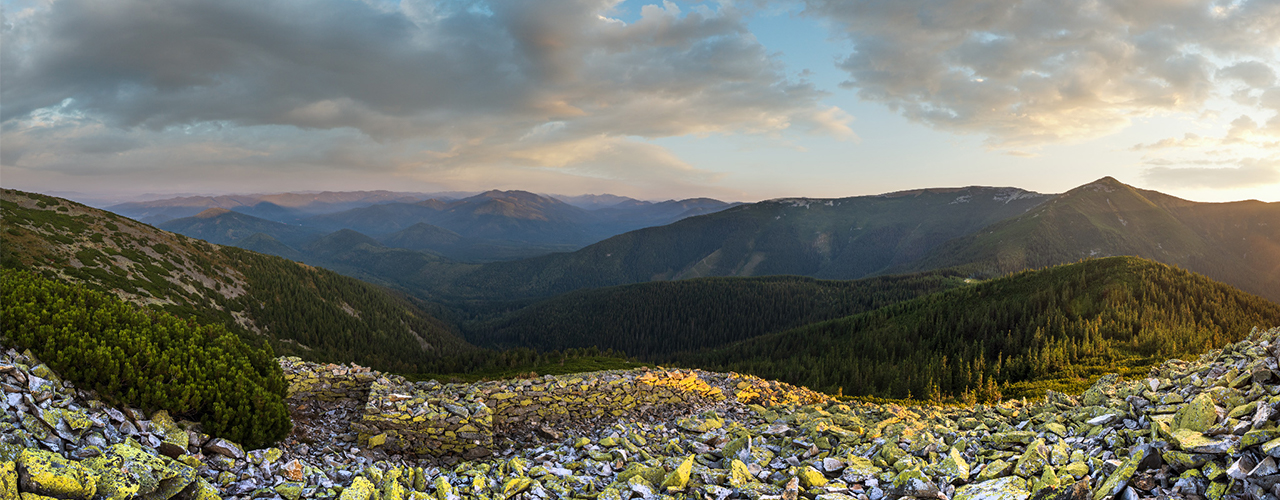

Not only the legends of the Carpathians are preserved in the memory of people, they are told by Nature itself: mountains, rivers and trees. These names are far from accidental, being the cultural code of local people, passed down from generation to generation and providing the key to understanding their ancestors.
The Bukovel resort lies between five mountains with eclectic names: Bulchyniokha, Dovha, Babyn Pohar, Chorna Kleva and Bukovel. Before you traverse them all, I'm going to introduce you to these mountains and explain where those strange names came from. So, what did the Hutsul ancestors want to tell us?
Dovha
If you look at Mt. Dovha from a bird's eye view (or just google the image) you can see the mountain stretching for several kilometers, forming a long, almost flat ridge. That's what the name came from: "the long mountain". From ancient times shepherds used Dovha for orienteeting on their sheep-driving route. It was simple enough to climb to the top and follow along the ridge. Why invent complex things?
Bulchyniokha
It is said that the name of the mountain originated from a tragic love story which struck the locals centuries ago. A young fellow courted a girl from a neighboring village. On the day of their wedding, they met halfway on their way to the church, located on the other side of the mountain. During the wedding procession, the guests and the newlyweds were suddenly struck by sharp gusts of wind. The bride disappeared forever. Later on, the mountain was called Bulchyniokha – to preserve the memory of a young girl who was taken away from her beloved one by the "stormy" weather (the name most likely derives from dialectal words for "storm" or "wind"). If you happen to climb Bulchyniokha with your significant other, be sure to tell them this legend.
Bukovel
The name "Bukovel" (a derivative from the word "buk", which translates as "beech") is related to the beech-tree forest you may see on the slopes of the mountain. The first settlers to arrive in this area were amazed by the beauty of the place and the grandeur of the trees. So they decided to stay and called their new home Bukovel, a word that used to describe "a meadow surrounded by beech trees". Over time, the area gained popularity as a natural health resort. The present-day Bukovel resort lies conveniently at the very foot of the mountain.
Chorna Kleva
There are two versions of the origin of the name of this mountain. The mystical one tells about ancient sorcerers once living in this place. The "chorna" part (meaning "black") symbolizes the atmosphere that surrounded the mountain, while "kleva" (a likely derivative from the word "klen", which translates as "maple") – refers to the maple forests that once grew in the area. The second version has it that the word "black" indicates the perception Hutsuls had of the mountain – as a darker figure against the forests-covered green mountains. The word "kleva" may have derived from a dialectal word for "passage".
Babyn Pohar
The legend of the mountain Babyn Pohar reminds of a simple truth – everyone is equal before the powers of nature. Nature obeys only the strong, the brave and those who respect it: be it a man, a woman or an animal. So, according to this legend, "Babyn Pohar" is a territory that once was owned by a strong woman ("baba" translates as "an elderly woman"). This lady had a significant influence on the local community, being the leader of shepherds, hunters, beekeepers and herdsmen. The word "pohar" in this context means a cleared area the woman claimed as her residence.